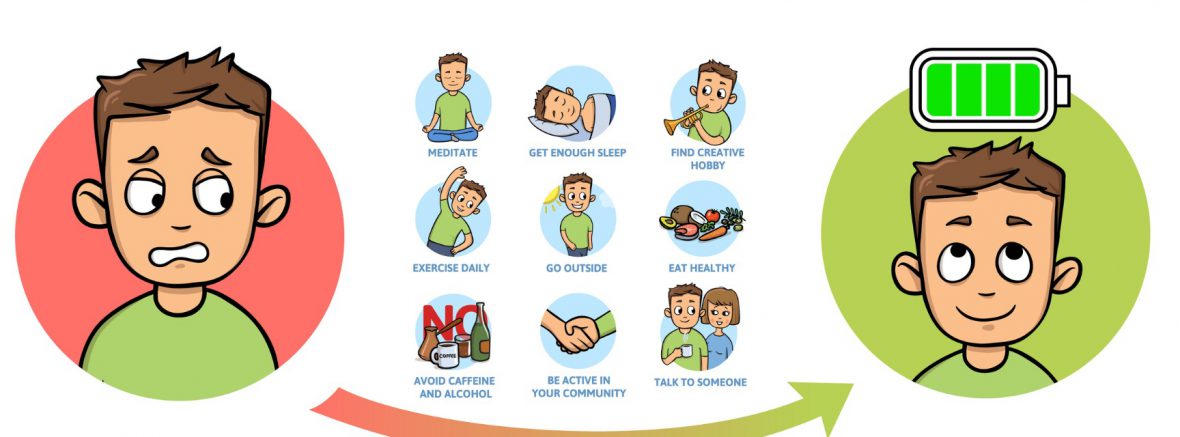Overview:
Childhood obesity is a disturbing problem which can lead not only to physical, health-related issues in children but can also cause psychological and emotional problems. This article will discuss some of the effects of obesity on children’s emotional and psychological well-being such as:
- Social Humiliation
- Bullying
- Low Self-Esteem
- Anxiety & Depression
- Emotional Eating
- Discrimination
- Body Dissatisfaction
- Eating Disorders Emotional Distress
Social Humiliation
For children who are obese, living with the extra weight can be heartbreaking. The stigma linked with being obese, in a society that rewards being thin, can be detrimental to a child’s emotional and psychological health. Thus, obese children may become victims of social humiliation.
School Bullying
Data show that obese children are more likely to become victims of bullying.
Low Self Esteem
Obese children may have low self-esteem because of continuous criticism from peers. Their peers may ridicule and humiliate them in front of other groups. Teachers may also neglect them when choosing students for physical games. Low self-esteem may promote feelings of shame which, in turn, may lead to a lack of self-confidence. Further, shame and lack of self-confidence may result in poor grades. One can only imagine how hard it is for a child to deal with these emotional and psychological issues.
Anxiety and Depression
Emotional turmoil can make a child feel depressed. He or she may feel they don’t fit in anywhere, including school, the playground, or at home. This may cause them to feel sad, tense, and anxious. When these feelings become ingrained inTheir day-to-day life, they may become gloomy, depressed, and withdrawn.
Emotional Eating
Some overweight children seek emotional comfort from food. This emotional eating can lead to more weight gain, which may cause them to feel even less control over their emotions in the long run.
Discrimination
Some weight-related problems continue into teenage years and beyond. Overweight or obese adolescents and adults might suffer from discrimination based on their weight. Dating and intimate relationships may be avoided due to fear of rejection. In addition, research shows that obese teens have less chance of getting into prestigious universities. Further, overweight and obese candidates may be passed over when applying for jobs, with the jobs going to more physically attractive candidates.
Body Dissatisfaction
Overweight and obese children may feel ashamed of their bodies or see themselves as ugly. They may talk about themselves in a negative way, and allow others to do the same.
Eating Disorders
Overweight and obese children are more likely to show symptoms of eating disorders such as binge eating, emotional eating, bulimia, or anorexia nervosa.
Emotional Distress:
Parents of overweight and obese children should be aware of the following signs and symptoms of emotional distress:
- The child is unusually sad, withdrawn, angry, or lonely most of the time.
- The child is less interested in activities they once enjoyed.
- The child is resistant to making friends or participating in social activities.
- The child talks negatively about him/herself and seems to have low self-worth.
- The child may think of hurting him/herself or others.
- The child may show overeating or binge-eating behavior.
- The child is sleeping too much or not sleeping enough.
- The child may ask for school leaves or be unable to continue regular attendance.
- Lack of interest in play activities.
Summary:
Some of the most concerning problems that may develop in obese and overweight children are psychological and emotional. This can hinder communication with peers and family members and can lead to depression. The children may find it difficult to make new friends, play outside, go to the park, participate in classroom activities, or wear trendy clothes. They can be victims of school bullying, biased teacher behavior, discrimination, and teasing. Studies have shown that obese children and teens are more likely to have low self-esteem and a lower quality of life. They may lack self-confidence, feel lonely, experience deep sadness, and have high levels of stress.
Overweight and obese children may develop unhealthy behaviors such as binge eating, emotional eating, bulimia or anorexia nervosa, or social isolation.
Parents of overweight and obese children should look for signs and symptoms of emotional distress and offer support and assistance if the child appears to be struggling.



